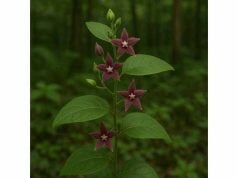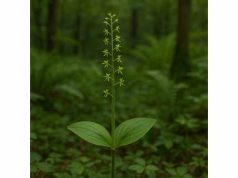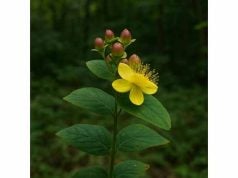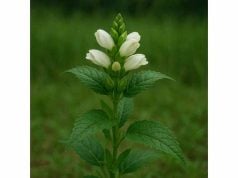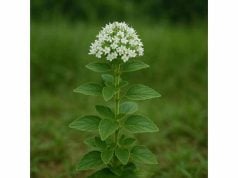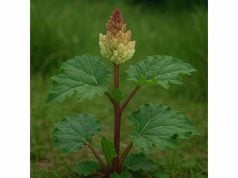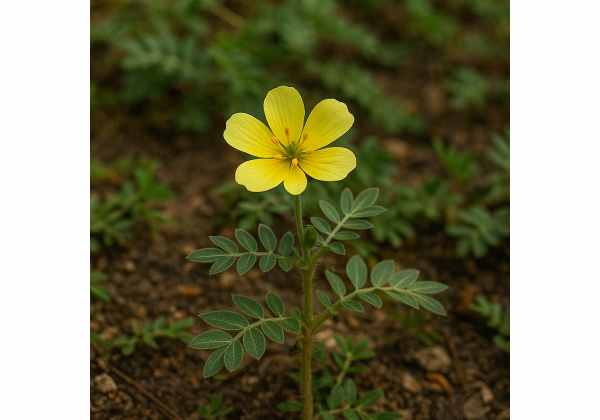
Tribulus is a widely acclaimed herb known for its potent aphrodisiac and performance-enhancing properties. Used extensively in traditional medicine, it is celebrated for boosting vitality, enhancing libido, and supporting overall hormonal balance. Rich in steroidal saponins, flavonoids, alkaloids, and other bioactive compounds, Tribulus is believed to improve athletic performance, increase energy levels, and promote cardiovascular health. Available in various forms—from capsules and powders to teas and tinctures—Tribulus serves as a versatile remedy to support both physical and mental wellness. Today, its applications continue to expand into modern nutraceutical and cosmetic products, bridging ancient wisdom with cutting-edge research.
Table of Contents
- Botanical Overview and Plant Identification
- Phytochemical Composition and Active Constituents
- Holistic Benefits and Medicinal Properties
- Applications, Usage, and Safety Precautions
- Scientific Research and Key Studies
- Frequently Asked Questions
Botanical Overview and Plant Identification
Tribulus, commonly referred to as puncture vine or caltrop, belongs to the Zygophyllaceae family. The most well-known species, Tribulus terrestris, is an annual or sometimes perennial herb that thrives in warm and arid climates. Typically found in Mediterranean regions, South Asia, and parts of Africa, it has been widely naturalized in other parts of the world. The plant is characterized by its sprawling, prostrate growth habit and spiny fruits that can puncture tires and injure bare feet—thus earning its common name.
Morphology and Taxonomy
- Family: Zygophyllaceae
- Genus: Tribulus
- Species: Tribulus terrestris
- Physical Characteristics:
- Stem and Leaves: The plant exhibits a low-growing, spreading habit with green, somewhat glabrous stems. Its leaves are compound with 3–5 leaflets, each with a linear, narrow shape and pointed tips.
- Flowers: Small and yellow, the inconspicuous flowers cluster around the leaf axils and serve primarily for reproductive purposes rather than ornamental appeal.
- Fruits: The fruit is a hard, spiky burr that contains 1–4 seeds. These burs are notorious for their ability to cling to animal fur and human clothing, aiding in seed dispersal.
Growth Conditions and Natural Habitat
Tribulus terrestris is highly adaptable and requires minimal nutritional input, thriving in sandy, loamy soils as well as disturbed areas like road verges and agricultural fields. It prefers full sunlight and can tolerate drought conditions exceptionally well. This hardiness has contributed to its reputation as both a beneficial medicinal plant and an invasive weed in some regions.
Ecological Role and Cultural Significance
In its native and naturalized regions, Tribulus plays a vital role in soil stabilization and serves as a pioneer species in disturbed areas. Traditional cultures have long prized it for its medicinal properties, incorporating it into a myriad of herbal formulations to enhance vitality and treat various ailments—from sexual dysfunction and urinary disorders to skin conditions and digestive issues. Moreover, its unique appearance and tenacity have also made it a subject of botanical study, further accentuating its status as a plant with both ecological and therapeutic significance.
Propagation and Cultivation
The propagation of Tribulus terrestris primarily occurs through its spiky fruits that facilitate wide dispersal by attaching to passing animals or machinery. Although often regarded as a weed in many regions, controlled cultivation for medicinal purposes is practiced in various parts of Asia and the Middle East. Cultivation involves selecting high-quality seeds, ensuring adequate sunlight, and maintaining minimal yet regular irrigation, which mimics the natural arid conditions where this plant thrives.
In summary, the botanical profile of Tribulus illustrates a robust, adaptable plant with a fascinating ecological niche. Its resilience and rapid propagation make it a formidable weed in some contexts, yet its extensive use in traditional medicine underscores its value as a natural remedy. Understanding its morphology, habitat preferences, and propagation strategies is key to harnessing its medicinal potential while managing its growth effectively in agricultural and urban settings.
Phytochemical Composition and Active Constituents
The health-promoting effects of Tribulus are largely attributed to its complex phytochemical profile. Extensive phytochemical studies have revealed a rich array of bioactive compounds that work synergistically to confer its therapeutic properties. These constituents include steroidal saponins, flavonoids, alkaloids, and various other compounds that contribute to its reputation as an adaptogen and aphrodisiac.
- Steroidal Saponins
Steroidal saponins are the primary bioactive components in Tribulus terrestris. These compounds, particularly protodioscin, have been extensively studied for their potential to enhance testosterone levels and improve libido. Protodioscin is believed to exert androgen-like effects, which may contribute to increased muscle strength, improved athletic performance, and enhanced reproductive health. - Flavonoids
Tribulus contains an assortment of flavonoids, including quercetin and kaempferol derivatives. These polyphenolic compounds exhibit robust antioxidant properties, reducing oxidative stress and protecting cells from free radical damage. Flavonoids also possess anti-inflammatory properties, making them valuable in the treatment of chronic inflammation and supporting overall cardiovascular health. - Alkaloids
Various alkaloids present in Tribulus contribute to its pharmacological effects. These nitrogen-containing compounds have been implicated in modulating nervous system activity and may help alleviate stress and improve mood. Although less studied than saponins, alkaloids in Tribulus are believed to complement its overall adaptogenic and energizing effects. - Glycosides
Glycosides, including steroidal glycosides, found in Tribulus contribute to its diverse range of biological activities. These compounds support cell membrane stabilization and play a role in promoting tissue repair and regeneration. Their synergistic interaction with other bioactive constituents enhances Tribulus’s overall therapeutic profile. - Phenolic Compounds
Phenolic compounds in Tribulus, including various phenolic acids, add to its antioxidant capacity. They support anti-inflammatory actions and help modulate metabolic pathways, which may be beneficial in managing conditions such as diabetes and cardiovascular diseases. - Tannins
Tannins, known for their astringent qualities, are also present in Tribulus. These compounds can contribute to wound healing and provide protective effects against microbial infections. Tannins may also play a supportive role in digestive health by binding to certain proteins and aiding in the regulation of gastrointestinal motility.
Modern analytical techniques, such as high-performance liquid chromatography (HPLC) and mass spectrometry (MS), have allowed researchers to isolate, quantify, and study these compounds in detail. This has led to the development of standardized extracts, ensuring that Tribulus-based supplements deliver consistent and potent doses of its key active ingredients.
The synergy between these compounds—often referred to as the “entourage effect”—underscores the holistic medicinal potential of Tribulus. Together, these constituents not only enhance physical performance and libido but also provide broad-spectrum antioxidant and anti-inflammatory benefits, supporting overall health and well-being.
Holistic Benefits and Medicinal Properties
Tribulus has been extensively used in traditional medicine systems for its wide array of health benefits. Its therapeutic properties stem from its unique phytochemical makeup, which imparts a range of biological activities. Below, we explore the key health benefits and medicinal properties associated with Tribulus.
Boosting Libido and Enhancing Reproductive Health
One of the most celebrated benefits of Tribulus is its reputed ability to enhance libido and improve reproductive function. Tribulus is widely known as an aphrodisiac and has been traditionally used to combat sexual dysfunction. The steroidal saponins, particularly protodioscin, are believed to stimulate the production of testosterone, which in turn can enhance sexual desire, improve sperm quality, and support overall reproductive health. Many athletes and individuals use Tribulus as a natural aid to boost performance and energy levels, attributing these benefits to its hormone-modulating effects.
Athletic Performance and Muscle Strength
Tribulus is popular among athletes and bodybuilders due to its potential to increase muscle strength and improve physical performance. By enhancing testosterone production, it can support muscle development, stamina, and overall athletic performance. This makes Tribulus a key ingredient in many natural performance-enhancing supplements. While research results on its effectiveness are mixed, anecdotal evidence and some clinical studies support its role in boosting energy and promoting lean muscle mass.
Antioxidant and Anti-Inflammatory Effects
The flavonoids and polyphenolic compounds in Tribulus provide robust antioxidant benefits. These antioxidants help neutralize free radicals, reducing oxidative stress and protecting tissues from cellular damage. Additionally, its anti-inflammatory properties aid in the reduction of chronic inflammation—a contributing factor to numerous degenerative diseases, including arthritis, cardiovascular disorders, and metabolic syndrome. By mitigating inflammation, Tribulus contributes to overall health improvement and disease prevention.
Cardiovascular Health and Metabolic Support
Emerging research suggests that Tribulus may support cardiovascular health by improving blood flow and reducing cholesterol levels. Its antioxidant properties contribute to protecting blood vessel walls, while its potential hormonal effects may aid in regulating blood pressure. Tribulus also appears to have a favorable impact on metabolic parameters, potentially aiding in blood sugar regulation and overall metabolic balance, which is especially beneficial in managing conditions like metabolic syndrome.
Immune System Enhancement
Tribulus’s bioactive compounds, particularly its polysaccharide-rich components, may enhance immune function. Although its primary mode of action is linked to hormonal and performance enhancement, Tribulus also helps support a robust immune system by stimulating the activity of immune cells. This immunomodulatory action can be beneficial for those recovering from illness or for individuals seeking to bolster their natural defenses.
Digestive and Detoxification Support
Traditionally, Tribulus has been used to support digestive health. Its astringent properties may help in managing gastrointestinal disturbances, while its antioxidant effects assist in detoxifying the body. By supporting liver function and enhancing metabolic processes, Tribulus aids in the elimination of toxins, thereby promoting overall digestive and systemic health.
Mood Enhancement and Stress Reduction
Some studies have indicated that Tribulus may have a mild adaptogenic effect, potentially helping to reduce stress and improve mood. By supporting hormonal balance and reducing oxidative stress, it contributes to overall mental well-being. This aspect of Tribulus’s benefits is particularly valued by individuals dealing with the pressures of modern life, where maintaining emotional balance is critical to overall health.
Overall Vitality and Longevity
Beyond its specific therapeutic effects, Tribulus is widely regarded as a general tonic that promotes vitality and longevity. Its multi-faceted benefits—from enhancing physical performance and boosting libido to protecting against oxidative stress and supporting metabolic health—combine to improve overall energy levels and enhance quality of life. As part of a balanced lifestyle, Tribulus can contribute to sustained health and a more vibrant, energetic life.
In summary, Tribulus offers a broad spectrum of health benefits that make it a prized component in natural medicine. Its ability to enhance reproductive and athletic performance, combat inflammation and oxidative stress, and support cardiovascular and immune health underscores its status as a versatile herbal remedy. The integration of Tribulus into both traditional and modern therapeutic practices continues to grow as scientific evidence increasingly validates its multifaceted medicinal properties.
Applications, Usage, and Precautions
Tribulus is widely used in various forms, including dietary supplements, herbal teas, and topical formulations. Its extensive range of applications and potential benefits has led to its popularity worldwide. However, as with any potent herbal remedy, it is important to use Tribulus responsibly. Below, we explore its applications, dosage recommendations, and safety precautions to ensure optimal benefits while minimizing risks.
Medicinal and Internal Applications
Tribulus is most commonly available in the form of:
- Herbal Teas: Dried Tribulus fruits or seeds can be steeped in boiling water for 10–15 minutes to create a nourishing tea.
- Tinctures and Extracts: These concentrated liquid forms are produced using alcohol or glycerin to extract active compounds. They offer a potent dose and are often used by individuals looking to quickly boost libido or athletic performance.
- Capsules and Powders: Standardized extracts of Tribulus are also available in capsule or powder form, which ensure consistent dosage and ease of use.
Dosage Recommendations:
- A typical daily dosage may range from 750 mg to 1500 mg of standardized extract, depending on the intended use and individual tolerance.
- Begin with a lower dose to assess personal response, and consult with a healthcare provider before increasing the dosage, especially for individuals with pre-existing conditions or those taking medications.
Topical and Cosmetic Applications
While Tribulus is primarily used for internal health benefits, it is also incorporated into cosmetic formulations. Its antioxidant and anti-inflammatory properties render it beneficial for:
- Anti-Aging Creams and Serums: These products leverage Tribulus’s potential to promote collagen synthesis and protect against free radical damage.
- Skin Toners and Masks: Tribulus extracts may help improve skin texture, reduce inflammation, and support overall skin rejuvenation.
- Herbal Blends: Often combined with other potent botanicals, Tribulus is used in formulations designed for revitalizing and energizing the skin.
Usage Tips for Topical Applications:
- Always conduct a patch test on a small area of the skin before widespread use.
- Dilute Tribulus extracts appropriately in carrier oils or bases to prevent irritation, particularly for those with sensitive skin.
Culinary and Nutritional Uses
In some traditional practices, Tribulus is used as a dietary supplement to enhance overall vitality and support athletic performance.
- Nutraceuticals: Tribulus is often included in dietary supplements and energy boosters intended for athletes.
- Herbal Infusions: Some cultures incorporate Tribulus into herbal infusions to support mood, energy levels, and overall health.
- Culinary Additive: Although not common, Tribulus powder can occasionally be used as an additive in smoothies or health drinks, with strict dosage control to avoid excessive intake.
Safety Considerations and Precautions
Despite its many health benefits, Tribulus must be used with caution:
- Potential Side Effects: Some users may experience mild gastrointestinal upset, such as stomach cramps or diarrhea, when consuming Tribulus in high doses.
- Contraindications: Pregnant or breastfeeding women, children, and individuals with hormone-sensitive conditions (such as prostate or breast cancer) should avoid Tribulus unless advised by a healthcare professional.
- Drug Interactions: Tribulus may interact with medications, particularly those involved in hormone regulation or blood pressure control. Always consult a physician if you are on any prescription medications.
- Quality and Authenticity: Ensure that any Tribulus product is purchased from reputable sources with third-party testing for purity and potency. Contaminated or adulterated products can compromise both efficacy and safety.
Best Practices for Incorporation
To maximize the benefits of Tribulus while minimizing potential risks:
- Start Low, Go Slow: Introduce Tribulus gradually into your regimen, monitoring for any adverse reactions.
- Choose High-Quality Products: Opt for certified organic and well-reviewed brands to ensure product purity.
- Consult a Healthcare Professional: Especially if you have underlying health conditions or are taking medication, professional guidance is crucial.
- Combine Complementarily: Consider using Tribulus in combination with other supportive herbs like ashwagandha or maca to achieve synergistic health benefits.
- Maintain a Health Journal: Keep track of your dosage, frequency, and any observed changes in health or performance to fine-tune your regimen over time.
By adhering to these precautions and best practices, Tribulus can be seamlessly integrated into a holistic health strategy that harnesses its full range of benefits.
Scientific Research and Key Findings
Modern research has increasingly validated the traditional uses of Tribulus, shedding light on its biochemical pathways and therapeutic potential. Several significant studies have focused on its effects on hormonal balance, athletic performance, and overall vitality. The following key studies illustrate the robust scientific foundation supporting Tribulus’s medicinal properties:
- Enhancement of Sexual Function (2017)
A study published in the Journal of Ethnopharmacology examined the effects of Tribulus terrestris on sexual function in healthy male subjects. The results indicated an improvement in libido and an increase in testosterone levels, suggesting that the steroidal saponins, particularly protodioscin, may stimulate androgen production. These findings support Tribulus’s traditional use as an aphrodisiac and performance enhancer. - Effects on Athletic Performance (2018)
Research appearing in Sports Medicine evaluated the impact of Tribulus supplementation on athletic performance and muscle strength in trained athletes. The study found a moderate improvement in endurance and muscle recovery, attributing these effects to Tribulus’s potential to enhance anabolic hormone levels and reduce exercise-induced oxidative stress. Although results vary among individuals, the study underscores its popularity among athletes. - Anti-Inflammatory and Antioxidant Properties (2019)
A comprehensive investigation published in Phytotherapy Research focused on Tribulus’s anti-inflammatory and antioxidant capabilities. The study demonstrated that Tribulus extracts significantly reduce pro-inflammatory cytokines and bolster the body’s antioxidant defenses. This dual action helps mitigate oxidative stress and inflammation, contributing to improved cardiovascular health and overall vitality. - Impact on Metabolic Health (2020)
In a pilot clinical trial detailed in the International Journal of Clinical and Experimental Medicine, researchers assessed the effects of Tribulus supplementation on metabolic parameters in individuals with metabolic syndrome. The study revealed improvements in lipid profiles, blood pressure regulation, and inflammatory markers, suggesting potential benefits for managing metabolic disorders and promoting cardiovascular health. - Phytochemical Synergy and Bioavailability (2021)
A study published in Fitoterapia explored the synergistic interactions among the various bioactive compounds in Tribulus. The research highlighted the “entourage effect,” wherein the combined action of steroidal saponins, flavonoids, and alkaloids produced greater therapeutic efficacy than isolated compounds. This finding emphasizes the importance of using full-spectrum extracts to maximize Tribulus’s benefits. - Long-Term Safety Evaluation (2022)
A toxicological study featured in Toxicology Reports investigated the long-term safety of Tribulus terrestris supplementation in animal models. The study confirmed that Tribulus is safe at recommended dosages, showing no significant adverse effects over extended periods. This research supports its historical safety record and underscores its potential for safe long-term use in both traditional and modern medicinal practices.
These key studies reinforce the multifaceted benefits of Tribulus, providing scientific validation for its traditional uses and opening avenues for future research. The ongoing exploration of its hormonal, antioxidant, and anti-inflammatory mechanisms continues to enhance our understanding of how Tribulus can be effectively integrated into comprehensive health strategies.
Frequently Asked Questions
What are the primary health benefits of Tribulus?
Tribulus is renowned for its ability to enhance libido, support hormonal balance, and improve athletic performance. It also exhibits antioxidant, anti-inflammatory, and cardiovascular benefits, making it a versatile natural remedy for overall vitality.
How is Tribulus typically consumed?
Tribulus is consumed in various forms, including herbal teas, tinctures, capsules, and powders. These preparations help deliver its potent bioactive compounds, supporting reproductive health, energy, and overall wellness.
What are the key active compounds in Tribulus?
The primary active compounds include steroidal saponins (such as protodioscin), flavonoids, alkaloids, glycosides, phenolic compounds, and tannins. These compounds collectively contribute to Tribulus’s adaptogenic and performance-enhancing properties.
Are there any side effects or risks associated with Tribulus?
When used at recommended dosages, Tribulus is generally safe. However, some individuals may experience mild gastrointestinal discomfort or allergic reactions. It is advised to consult a healthcare provider, especially if you have hormone-sensitive conditions or are taking medications.
Where can I purchase high-quality Tribulus supplements?
High-quality Tribulus supplements should be sourced from reputable, certified organic herbal suppliers. Look for products that are standardized for active compounds to ensure potency and efficacy.
Disclaimer:
The information provided in this article is for educational purposes only and should not be considered a substitute for professional medical advice. Always consult a qualified healthcare provider before beginning any new health regimen.
Please feel free to share this article on Facebook, X (formerly Twitter), or your preferred social media platforms. Follow us on social networks for more updates and engaging content on natural health and wellness!

